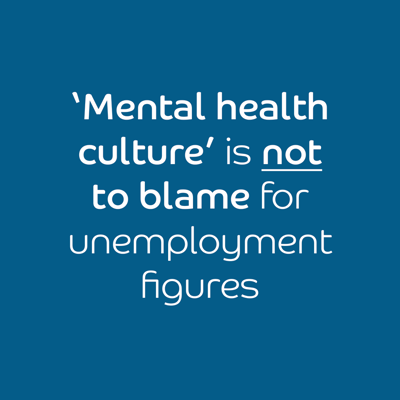Our thoughts on the government’s new Ten-Year Health Plan for the NHS
09/10/2024
New government, new ten-year plan for the NHS. Harvey from the Rethink Mental Illness Policy & Practice team outlines what Labour’s view for the NHS means for mental health services and why it remains important to have your voice heard.
This month begins the engagement process around a new Ten- Year Health Plan, designed to set out the direction of travel for our health system moving forward. You can read our response to the new consultation on the ten-year plan here.
“You’re joking … not another one?!”, you might say.
Indeed, it is only five years since the launch of the NHS Long Term Plan in 2019 – the previous government’s last ‘ten-year plan’ for the NHS. So, what has changed?
Well, we have a new party in government that is raring to go – having made clear through their manifesto, and since the election, their desire to “build an NHS fit for the future.”
The Health and Social Care Secretary Wes Streeting MP has been frank about the state of the NHS since coming to power – describing it as “broken” during his first speech on only his second day in post.
But is this the case when it comes to mental health services?
The government requested an independent review by Lord Darzi to take stock of the current state of the NHS before it presses ahead with its reforms.
Like our recent Right Treatment, Right Time report, Darzi highlights soaring waiting lists, adding that long waits had become normalised, with 345,000 referrals waiting more than a year for a first contact with mental health services (a number he notes is larger than the population of Leicester).
He also notes that these long waits are happening not only in the community but in A&E – with people attending needing support with a mental health issue waiting an average 25% longer than others. He is also scathing about the state of some mental health hospitals – while some are high quality and modern, others remain stuck in the Victorian era.
Most of what the review says does not come as a surprise. We hear about these issues daily from those living with mental illness. It is significant, however, that they have been recognised and reported here.
Does this mean that the previous NHS Long Term Plan has failed mental health?
Not necessarily. There have been record levels of investment in mental health over the past five years, and Darzi’s review states that this is reflected in increases in workforce and in activity, recognising that more people are accessing mental health services for support than ever before.
However, he also states that this needs to be understood in the historical context, with the system playing catch-up after years of neglect and underinvestment, as well as record levels of demand for mental health support – which he says is now rising faster than in any other area of the health service.
The new Prime Minister Keir Starmer MP has said that the NHS needs “major surgery, not sticking plaster solutions” in response to the picture painted by the review. But it would be wrong to say that every corner of the NHS has resisted this kind of radical change to date.
Rethink Mental Illness knows from our experience that fantastic things can happen with local health systems embrace a transformative new vision for care and support, such as that set out in 2019’s Community Mental Health Framework.
Somerset is one of those areas. There, the NHS, local council and voluntary organisations, working as equal partners, have torn down the practical and relational barriers that used to exist between their services, and have worked closely with people who have lived experience of mental illness to create a radical new model of community mental health care.
Somerset Open Mental Health now provides 24/7 support for mental health and other needs. Evidence shows that everyone who approaches the service now receives some kind of help, and that since its launch fewer people with mental health needs are ending up so unwell that they present at A&E or end up in hospital.
The approach taken in Somerset mirrors the Prime Minister’s ambition to move quality care from hospital to community. The Health and Social Care Secretary has even said that he wants to see more funding shift in this direction before the next General Election.
If the Prime Minister wants to back successful models of community health care, as he said he would launching Labour’s Health Mission last year, then the Ten-Year Health Plan must protect and take forward the transformation of community mental health services, ensuring adults everywhere in the country can receive joined-up support for their individual needs.
The plan offers the opportunity to deliver similarly ambitious reform of children and young people’s mental health services – making sure that those of any age can receive this kind of help.
To some, this may feel like ‘yet another’ Ten Year Health Plan, but it is clear that there will few publications under this new government that will have more significance for the future of our mental health system.




